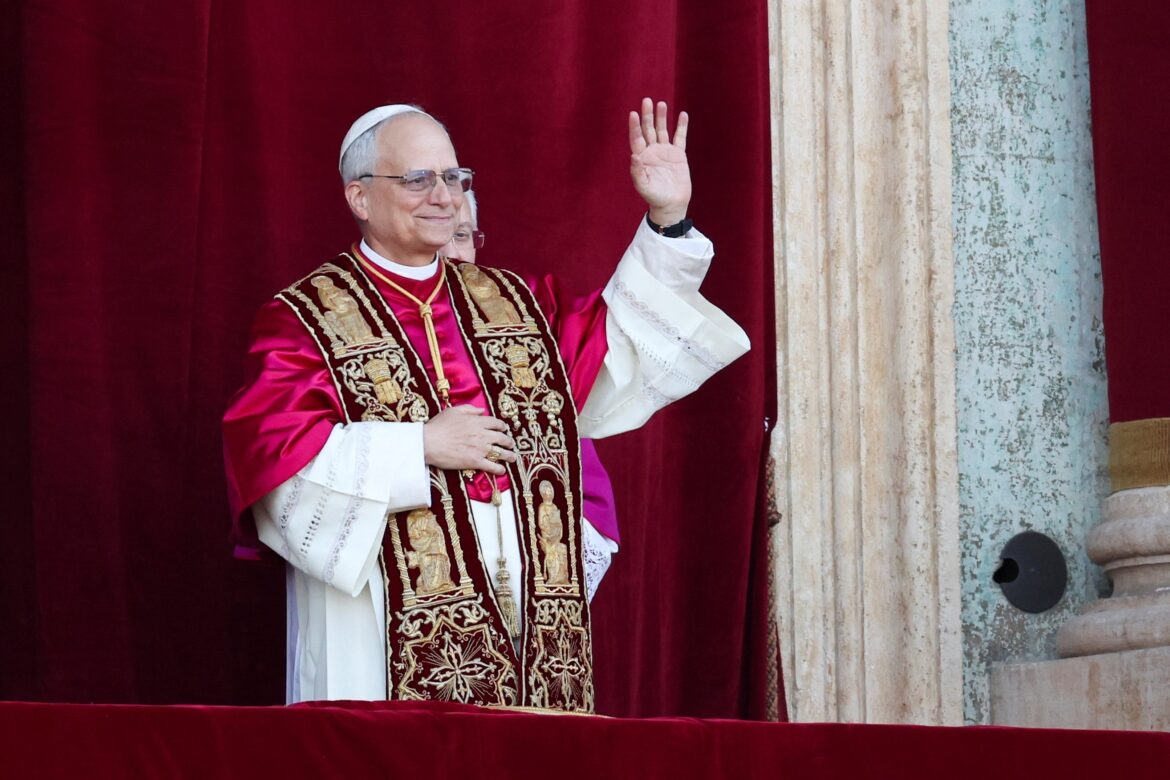The seagulls perched on the Sistine Chapel rooftop undoubtedly saw the white smoke first. But it didn’t take long for the basilica bells to confirm the news we were all waiting for — a new pope had been chosen.
In that moment, the question of who the cardinals elected was almost irrelevant. The chair would no longer be vacant, nor the church left fatherless. Smiling faces and teary eyes were everywhere. Spontaneous joy filled St. Peter’s Square.
When the name Robert Francis Prevost was announced an hour later, however, the whole world seemed puzzled, even taken aback. Expert commentators and average Catholics alike were unprepared for the announcement. An American? Under 70? An Augustinian? A missionary in Peru? And, of course, the biggest question of all: What kind of pope will he be?
Vatican analysts, clergy and journalists will all weigh in, of course, and media pundits will do their homework on every aspect of Cardinal Prevost’s life. But their prognostications about this papacy are unlikely to be any more accurate than their conclave predictions were. Like it or not, papacies unfold. At this point, no one really knows what kind of pope Leo XIV will be. He may not know either.
We do not yet know what choices Pope Leo will make. We can, however, pay close attention to the choices our new Holy Father has already made.
The papal name
The papal name: Leo XIV is a deeply traditional choice. Leo the Great reigned just before the final collapse of the Roman Empire. But the most recent pope by that name, Pope Leo XIII, is likely more relevant. Our new pope has intentionally connected himself to Pope Leo XIII. The choice to do that is worth pondering. Three dimensions of his predecessor’s pontificate come to mind.
First, social justice. On the cusp of the 20th century, Pope Leo consolidated the church’s social teaching and articulated it in the landmark encyclical “Rerum Novarum.” Leo was a strong voice for human dignity, the common good, solidarity and subsidiarity. He vigorously opposed societal and technological forces that threatened individual rights and responsibilities, the family, private property and morality.
Standing on the threshold of yet another technological revolution, a Leonine pope may be exactly what the church and the world need.
Second, Marian devotion. Leo XIII is known by many as “the rosary pope.” Deeply devoted to Mary, he wrote a record 12 encyclicals on the rosary.
Mentioning that the date of his election fell on the feast of Our Lady of Pompeii in his first public appearance, our new Holy Father chose to ask the intercession of the Blessed Virgin Mary and invited the entire church to pray a Hail Mary with him.
Third, spiritual warfare. May 8 is also the date on which the church has traditionally remembered the apparitions of St. Michael the Archangel. In 1884, Pope Leo XIII experienced a vision of demons attacking the church to fulfill Satan’s boast that he could destroy it within a hundred years. Horrified by what he witnessed in the spiritual realm, the pope composed the prayer to St. Michael many Catholics still pray today.
It seems our new Holy Father is aware that the battle rages on. But he reminded us in no uncertain terms, “Evil will not prevail.”
Nod to tradition
Preserving tradition: Pope Leo XIV stepped onto the loggia dressed in traditional papal attire for the occasion, including the red mozzetta (short cape), and the ornately embroidered papal stole. Pope Francis did not. We have not yet seen whether Pope Leo will don the traditional red shoes (neither St. John Paul II nor Francis did). And we do not yet know whether he will reside in the papal apartments or at Casa Santa Marta.
Languages: Leo XIV is fluent in numerous languages. Greeting the crowds, he chose to speak in Latin, Italian and Spanish, but curiously, not in English. The English-speaking world has never been addressed by a pope who shares their native language. When we do, we’ll experience the kind of familiarity Italians have known for centuries.
Mission: Pope Leo began his pontificate with the word “peace.” He went on to speak about God’s love, unity and the primacy of mission. Leo XIV is a younger pope with a great task before him, one that will require a missionary heart seasoned by deep pastoral experience.
Cardinal Prevost’s name may not have been on many conclave bingo cards. Yet it appears that the cardinals have chosen a pastor, and not a diplomat, to bring the pontificates of Benedict XVI and Francis together. Here’s hoping — and praying — that the choices ahead accomplish that.
Jaymie Stuart Wolfe is a sinner, Catholic convert, freelance writer and editor, musician, speaker, pet-aholic, wife and mom of eight grown children, loving life in New Orleans.




